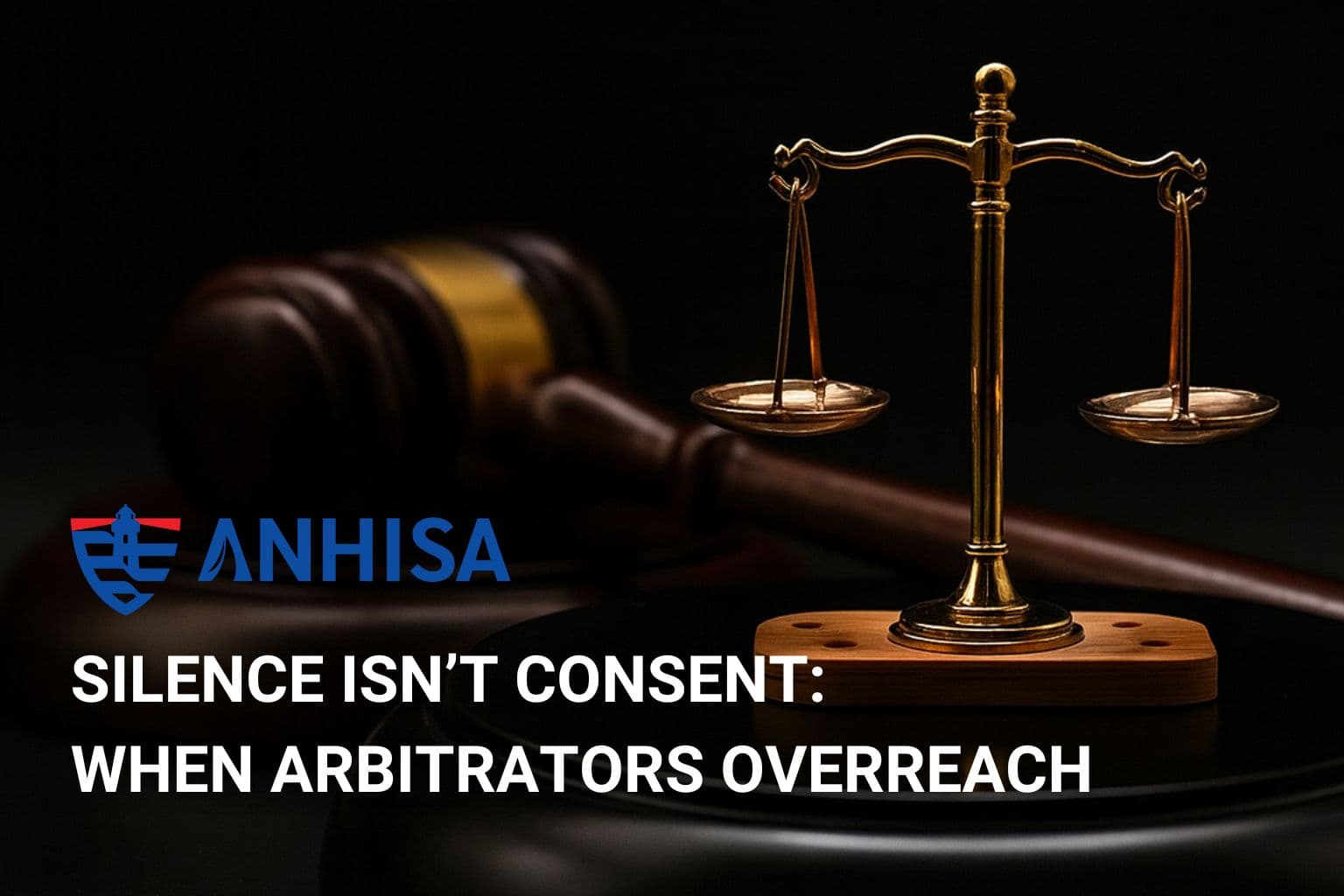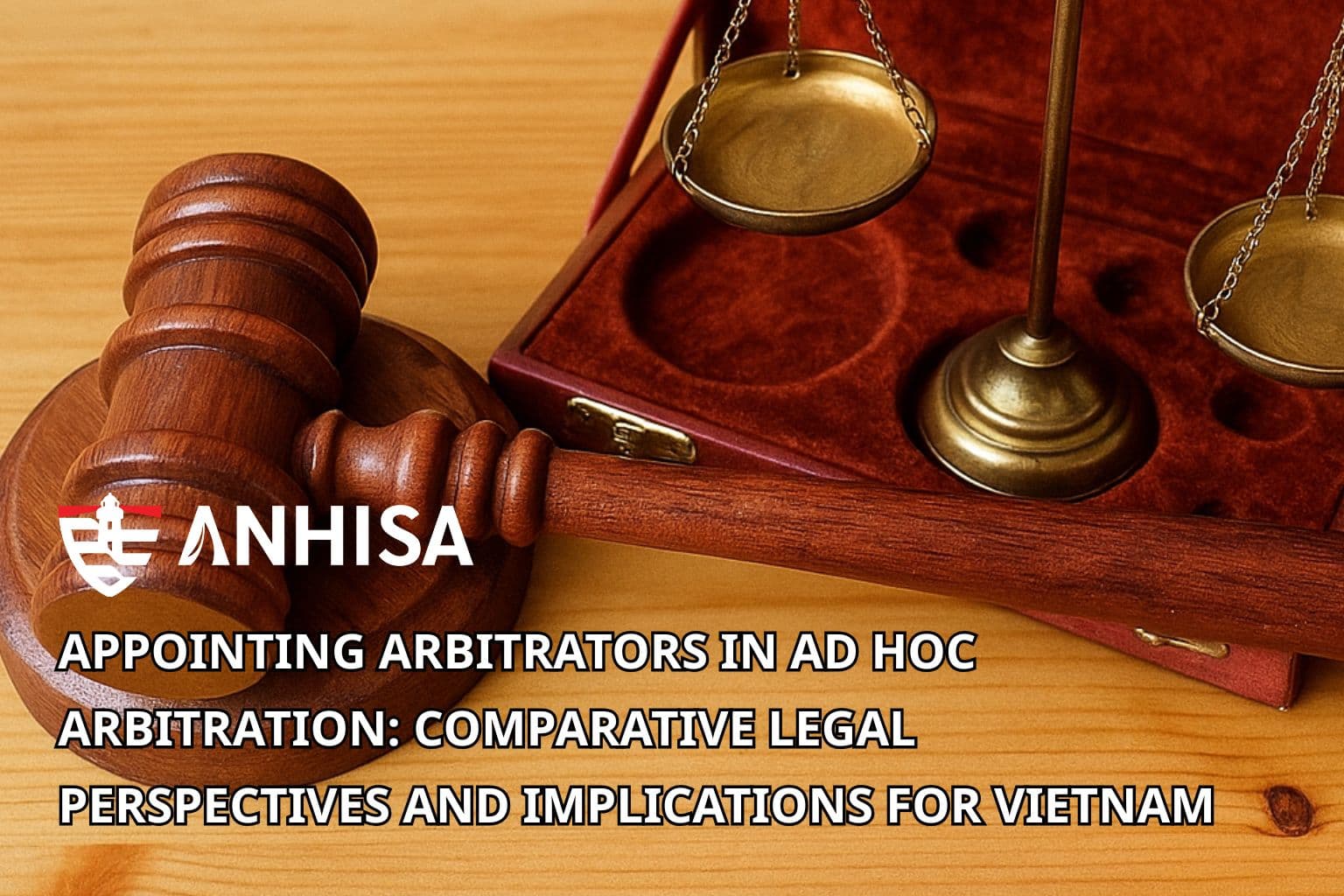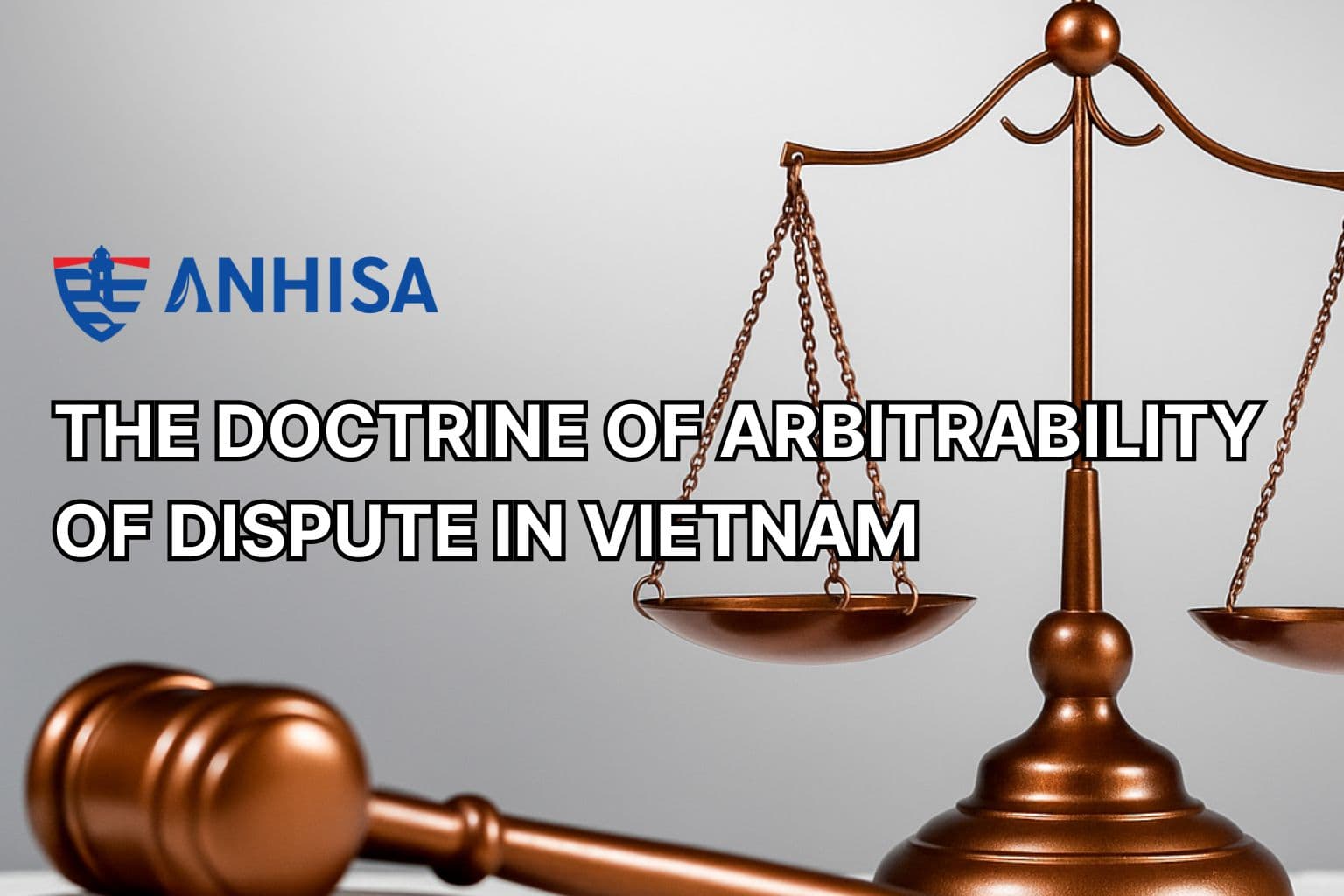SUBMISSION AGREEMENTS AS A SOLUTION FOR MULTI-PARTY MARITIME DISPUTES
October 22, 2025
Foreword
Maritime commerce operates through intricate contractual chains: shipowners charter to head charterers, who sub-charter to sub-charterers, who arrange cargo transportation for cargo interests, all backed by insurers at multiple levels. When disputes erupt such as a cargo damage claim, a collision, or a charter party breach, these contractual chains fracture into parallel proceedings across multiple forums, risking inconsistent outcomes, duplicated costs, and commercial relationship destruction. The submission agreement emerges as a sophisticated instrument uniquely capable of addressing this “chain of contracts” problem, unifying multi-party disputes into coherent arbitral proceedings that preserve efficiency and commercial relationships while ensuring comprehensive resolution.
1. The Multi-Party Problem in Maritime Disputes
Maritime disputes rarely involve only two parties; they characteristically implicate entire contractual chains with divergent arbitration provisions. Consider a common scenario: cargo damage during ocean transportation. The contractual structure typically involves:
- Shipowner (vessel owner) and Head Charterer (time or voyage charter)
- Head Charterer and Sub-Charterer (sub-charter arrangement)
- Sub-Charterer and Shipper/Cargo Interest (carriage contract, evidenced by bill of lading)
- Cargo Interest and Cargo Insurer (marine cargo insurance)
- Shipowner and P&I Club (protection and indemnity insurance)
When cargo arrives damaged, the cargo interest may claim against: the sub-charterer (under the bill of lading), the head charterer (if involved in booking), or the shipowner (as carrier). The sub-charterer may seek indemnity from the head charterer; the head charterer from the shipowner. Insurers, having paid claims, pursue subrogation rights against multiple parties.
Each contract in this chain likely contains different arbitration provisions: London arbitration under LMAA terms for charter parties, perhaps New York arbitration for the bill of lading, different institutional arbitration for insurance contracts. The result: parallel arbitrations in multiple seats, before different tribunals, applying potentially different procedural rules and substantive law[1].
Parallel proceedings in multi-party maritime disputes generate inefficiencies that submission agreements can remedy. The fragmentation creates:
- Inconsistent Findings: Different tribunals examining the same factual scenario (was the cargo properly stowed? was the vessel seaworthy? did the master exercise due diligence?) may reach contradictory conclusions. A London tribunal might find the cargo was damaged due to improper stowage by the shipper; a New York tribunal might find the vessel was unseaworthy. Such inconsistency defeats justice and certainty[2].
- Duplicated Costs: Multiple arbitrations mean repeated witness testimony, duplicated expert reports, parallel document production, and multiplied legal fees and arbitrator costs. The same master may testify in three separate arbitrations; surveyors may prepare multiple reports on identical cargo damage; maritime experts may analyze the same vessel condition repeatedly.
- Strategic Gamesmanship: Parties in parallel proceedings may strategically time submissions, withhold evidence until favorable findings emerge elsewhere, or manipulate procedure to gain advantage. The party with deeper resources can sustain multiple proceedings while opponents face financial pressure.
- Relationship Destruction: Maritime commerce depends on ongoing relationships where shipowners and charterers work together repeatedly; cargo interests rely on established carriers; agents and brokers maintain networks. Parallel adversarial proceedings across multiple forums accelerate relationship breakdown, damaging future commercial dealings[3].
In order to examine how submission agreements address these challenges, enabling unified multi-party arbitration that resolves maritime disputes comprehensively, efficiently, and in a manner preserving commercial relationships the legal foundations and overcoming practical challenges shall be further analyzed below.
2. Legal Foundations: Consent and Consolidation in Multi-Party Arbitration
I. The Consent Requirement
Arbitration’s consensual nature creates the fundamental challenge in multi-party disputes: parties cannot be forced into arbitration without their agreement. This principle, which is arbitration derives from party consent, is universally recognized and protects party autonomy[4]. But it creates difficulties in multi-party maritime disputes where parties have not agreed to arbitrate together.
Consider the cargo damage scenario: the shipowner and head charterer agreed to LMAA arbitration in their charter party; the cargo interest and sub-charterer agreed to New York arbitration in the bill of lading. The cargo interest cannot unilaterally force the shipowner into New York arbitration absent the shipowner’s consent, nor can the shipowner compel the cargo interest into London arbitration without consent. Absent agreement, parallel proceedings are inevitable.
Submission agreements provide the consensual foundation for unified multi-party arbitration. After disputes arise, parties can execute submission agreements consenting to consolidated arbitration. This post-dispute consent overcomes the fragmented arbitration clauses problem. All parties, such as shipowner, charterers, sub-charterers, cargo interests, potentially insurers, can agree to submit their related disputes to a single arbitration[5].
The consensual nature actually strengthens submission agreements’ legitimacy. Courts recognize that parties negotiating multi-party submission agreements after disputes materialize do so with full knowledge of the implications. This informed consent receives significant judicial deference.[6]

II. Consolidation Mechanisms
Submission agreements can explicitly provide for consolidation of related maritime disputes, but only with all parties’ consent. Consolidation, combining separate arbitrations into unified proceedings, typically requires either: (1) arbitration agreements expressly permitting consolidation, or (2) all parties’ consent [7].
Most maritime arbitration clauses do not contemplate consolidation. Standard LMAA terms, GENCON arbitration provisions, and typical bill of lading arbitration clauses are bilateral, contemplating two-party disputes. They lack consolidation provisions.
Institutional rules vary. Some (SIAC, HKIAC, ICC) permit tribunal-ordered consolidation under certain circumstances; others (LMAA traditionally) require party consent. But even where rules theoretically permit consolidation, practical obstacles emerge: different arbitration seats, different institutional rules, different stages of proceedings[8].
Submission agreements overcome these obstacles by securing express consent to consolidated proceedings which could eliminate consolidation barriers, enabling efficient unified proceedings.
III. The Separability Doctrine in Multi-Party Contexts
The separability doctrine, when arbitration agreements exist independently from underlying contract, operates distinctly in multi-party submission agreements. Classical separability doctrine holds that arbitration clauses are separable from main contracts, so challenges to contract validity do not automatically invalidate arbitration provisions.[9]
In multi-party maritime contexts, this becomes more complex. When parties from multiple contracts execute a submission agreement to consolidate disputes, the submission agreement cannot logically depend on any single underlying contract. It constitutes a freestanding multi-party contract, independently valid regardless of whether the underlying charter party, bill of lading, or insurance contract is valid, void, or voidable.
This independence proves critical in maritime disputes involving contract validity questions. If cargo interests claim the bill of lading is void due to forgery, or if charterers argue the charter party is voidable due to misrepresentation, these challenges do not invalidate the submission agreement unifying the disputes. The arbitral tribunal established by the submission agreement possesses jurisdiction to determine the underlying contract validity precisely because its authority derives from the separate, independent submission agreement[10].
Hence, when drafting multi-party maritime submission agreements, counsel should ensure the agreement contains independent consideration (the mutual promises to arbitrate), specifies all essential terms within the submission agreement itself, and avoids language suggesting it depends on any single underlying contract’s validity.
C. Overcoming Practical Challenges
I. The Negotiation Challenge
Securing agreement among multiple maritime parties with divergent interests presents the primary practical challenge to multi-party submission agreements. Each party naturally seeks procedural advantages: favorable arbitral seat, advantageous institutional rules, sympathetic arbitrators, procedures suiting their evidentiary position.
Overcoming negotiation obstacles requires:
- Identifying Shared Interests: All parties share interests in: avoiding inconsistent awards, reducing costs, achieving finality, and preserving relationships. Counsel should emphasize these mutual benefits.
- Objective Selection Criteria: Rather than parties advocating for procedures favoring them, establish objective criteria. For seat selection: geographic neutrality, pro-arbitration legal framework, enforceability. For arbitrators: maritime expertise, availability, reputation for efficiency. For procedures: appropriateness to dispute complexity and value.
- Package Proposals: Link concessions across multiple terms. One party accepts another’s preferred seat in exchange for their preferred institutional rules; another accepts specific arbitrator qualifications in exchange for discovery limitations.
- Mediator Facilitation: Sometimes independent mediators facilitate submission agreement negotiations, helping parties find common ground while managing adversarial dynamics.
- Staged Agreements: If urgency exists (pending court proceedings, limitation periods), parties can execute basic framework submission agreements (arbitration, seat, institutional rules) enabling commencement, while negotiating detailed procedures subsequently[11].
II. The Insurer Problem
Maritime insurers present special challenges in multi-party submission agreements due to subrogation rights and separate insurance contract arbitration provisions. Cargo insurers, having paid claims, pursue subrogation rights against carriers. P&I clubs defend shipowners and charterers. These insurers are not parties to the underlying maritime contracts but become dispute participants through insurance relationships.
Several issues arise:
- Subrogation Timing: Cargo insurers may not have paid claims when submission agreements are negotiated. Including them as parties proves difficult when their involvement is contingent. Thus, submission agreements can include provisions permitting subrogated insurers to join proceedings if they subsequently acquire rights, with procedures for late joinder.
- Insurance Contract Arbitration Clauses: Insurance policies typically contain separate arbitration provisions (often different seats and rules from underlying maritime contracts). Insurers may resist submission agreements requiring them to arbitrate in unfamiliar forums under different rules. Thereto, it is necessary to acknowledge insurers’ separate contractual rights while encouraging participation. Submission agreements can provide that insurers joining proceedings preserve rights to pursue insurance contract disputes separately if coverage issues arise.
- Coverage Disputes: Sometimes liability is clear but insurance coverage is disputed. Including coverage disputes in unified maritime arbitration may be inappropriate if they involve insurance policy interpretation unrelated to maritime liability issues. Hence, bifurcate coverage from liability need to be considered. The unified maritime arbitration determines liability and damages; separate proceedings (if necessary) resolve insurance coverage[12].

III. The Bill of Lading Incorporation Problem
Bills of lading often incorporate charter party arbitration clauses, but the effectiveness and scope of such incorporation remains uncertain, complicating multi-party submission agreements. Standard bills of lading contain clauses like: “All terms, conditions, and exceptions of the Charter Party, dated [date], are incorporated herein.”
Courts and arbitral tribunals may wrestle with questions:
- Does this incorporate the charter party arbitration clause into the bill of lading?
- If so, can cargo interests (bill of lading holders) be compelled to arbitrate under charter party terms?
- What if the incorporated charter party arbitration clause conflicts with the bill of lading’s own arbitration provision?
- Does incorporation extend to sub-charter parties at multiple levels?[13]
These uncertainties create risks in multi-party disputes. The cargo interest may argue the bill of lading arbitration clause governs; the shipowner argues the incorporated charter party clause governs. Different jurisdictions resolve these questions differently.
Multi-party submission agreements overcome this uncertainty. Rather than litigating whether charter party arbitration clauses are effectively incorporated into bills of lading, parties execute post-dispute submission agreements expressly consenting to unified arbitration. This eliminates incorporation disputes that all parties expressly agree to the arbitration framework, regardless of what various underlying contracts might or might not require[14].
IV. Governing Law Complexity
Multi-party maritime submission agreements must navigate complex governing law issues arising from multiple contracts, multiple jurisdictions, and multiple potential applicable laws. Three distinct legal frameworks require attention:
- Law Governing the Submission Agreement: Which law determines the submission agreement’s validity, interpretation, and enforcement? Best practice: the law of the arbitral seat.
- Law Governing the Arbitration Procedure: Which law governs the arbitral process? This is determined by the arbitral seat.
- Law(s) Governing the Substantive Merits: Which law governs the underlying maritime contracts and disputes? This may vary as the charter party may be governed by English law, the bill of lading by U.S. law, insurance by another jurisdiction’s law.
Explicitly addressing these three frameworks prevents subsequent disputes about applicable law. Maritime tribunals are accustomed to applying different substantive laws to different aspects of multi-party disputes which is common in shipping arbitration.[15]
D. Conclusion
Multi-party maritime disputes present challenges that conventional bilateral arbitration clauses cannot adequately address. The “chain of contracts” structure endemic to shipping, including owners, charterers, sub-charterers, cargo interests, insurers, intermediaries, creates fragmentation risks: parallel proceedings in multiple forums, inconsistent findings, duplicated costs, and relationship destruction.
Submission agreements emerge as sophisticated instruments uniquely capable of addressing these challenges. By securing post-dispute consent to unified arbitration from all relevant parties, submission agreements enable:
- Consolidated proceedings producing consistent findings binding all parties
- Comprehensive liability allocation reflecting actual multi-party causation
- Significant cost and time efficiencies compared to parallel proceedings
- Commercial relationship preservation through transparent unified processes
- Effective operation of maritime law doctrines like contribution and indemnity
Successfully deploying multi-party submission agreements requires understanding both arbitration law and maritime practice. Counsel must navigate consent requirements, design appropriate joinder and consolidation mechanisms, structure efficient procedures for complex multi-party arbitration, address insurer participation issues, overcome bill of lading incorporation uncertainties, and manage governing law complexity.
Our firm’s practice encompasses both the substantive maritime law expertise and arbitration procedure sophistication necessary to structure and implement effective multi-party submission agreements. Whether negotiating submission agreements to unify fragmented disputes, designing procedures for complex multi-party arbitrations, representing clients in consolidated maritime proceedings, or enforcing resulting awards internationally, we bring comprehensive capabilities proven in the demanding context of international maritime commerce.
The strategic deployment of submission agreements in multi-party maritime disputes represents sophisticated advocacy that transcends routine dispute resolution. It requires anticipating how contractual chains will fracture under dispute pressure, understanding the commercial imperatives driving different stakeholders, recognizing when consolidation serves clients’ interests versus when separate proceedings may be preferable, and executing negotiations that balance adversarial positioning with collaborative problem-solving.
For shipowners facing claims from multiple parties up and down contractual chains, submission agreements offer the possibility of resolving all related disputes in unified proceedings, eliminating the risk of inconsistent findings in different forums and establishing clear liability allocation. For charterers caught in the middle, who face claims from cargo interests while seeking indemnity from owners, consolidated arbitration enables comprehensive resolution rather than sequential proceedings with mounting costs and uncertain outcomes. For cargo interests and their insurers, unified proceedings ensure their claims are heard alongside all indemnity issues, preventing situations where they win against one party only to find that party cannot recover from others due to inconsistent findings elsewhere.
[1] Gary B. Born, International Commercial Arbitration (3rd ed., Kluwer Law International 2021), Vol. II, at 1543-1628.
[2] Nigel Blackaby et al., Redfern and Hunter on International Arbitration (7th ed., Oxford University Press 2023), para. 5.01-5.45
[3] Andrew Tweeddale & Keren Tweeddale, Arbitration of Commercial Disputes: International and English Law and Practice (Oxford University Press 2005), para. 8.15-8.45.
[4] Born, supra note 1, Vol. I, at 1355-1395.
[5] Id., Vol. II, at 1550-1565.
[6] Blackaby et al., supra note 2, para. 2.40.
[7] Born, supra note 1, Vol. I, at 1361-1365.
[8] Blackaby et al., supra note 2, para. 5.15-5.25.
[9] Id., Vol. I, at 1367-1370
[10] Tweeddale & Tweeddale, supra note 3, para. 3.25.
[11] Born, supra note 1, Vol. I, at 1387-1390.
[12] Id., Vol. II, at 1600-1610.
[13] Tweeddale & Tweeddale, supra note 3, para. 4.15-4.35 (discussing bills of lading and arbitration clause incorporation).
[14] Born, supra note 1, Vol. I, at 1370-1375.
[15] Id. at 1381-1383.
AUTHORS
DANG VIET ANH
Managing Partner
Mobile: (+84) 983 467070
Email: [email protected]
NGUYEN THI TUYET MAI
Senior Associate
Mobile: (+84) 939 117398
Email: [email protected]
PHAN MINH PHUONG
Associate
Mobile: (+84) 969 875630
Email: [email protected]
This article aims to furnish our clients and contacts with general information on the relevant topic for reference purposes only, without creating any duty of care on the part of ANHISA. The information presented herein is not intended to serve, nor should it be considered, as a substitute for legal or other professional advice.
ANHISA LLC AND OUR EXPERTISE
ANHISA LLC is a boutique law firm specializing in Dispute Resolution, Shipping and Aviation. Being the leading lawyers in various fields of law, our qualified, experienced, and supportive team of lawyers know how to best proceed with a case against or in relation to Vietnamese parties and are well equipped to provide clients with cost-effective and innovative solutions to their problems.
Regarding dispute resolution, we have represented Vietnamese and foreign clients in the resolution of disputes involving maritime, construction, commercial and civil matters. Our lawyers are well-equipped to offer services on a wide range of disputes and conflicts, whether cross-border or purely domestic, to appear before any Judges or Arbitral Tribunals. The firm is prepared to assist clients in designing the appropriate dispute resolution procedure to help resolve conflicts as efficiently and cost effectively as possible, which may involve combining elements of mediation and other methods such as arbitration.
Related posts

SILENCE ISN’T CONSENT: WHEN ARBITRATORS OVERREACH
November 27, 2025

APPOINTING ARBITRATORS IN AD HOC ARBITRATION: COMPARATIVE LEGAL PERSPECTIVES AND IMPLICATIONS FOR VIETNAM
October 08, 2025

PARTIES TO AN ARBITRATION AGREEMENT
October 01, 2025

THE DOCTRINE OF ARBITRABILITY OF DISPUTE IN VIETNAM
September 24, 2025
- TEL:
- Hanoi Office: +84 24 320 47609
- Saigon Office: +84 28 5416 5873
- HOTLINE:
- +84 (0) 939 117 398
- +84 (0) 983 488 380

